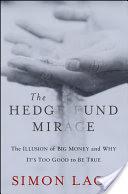
It’s a Safe Bet that Warren Buffett Understands Risk-Adjusted Returns
In response to Warren Buffett’s most recent Berkshire Hathaway shareholder letter which details an all-but-certain victory in his ten-year bet on the outperformance of a Vanguard S&P 500 Index fund vs. a collection of five hedge funds chosen by Ted Seides of Protégé Partners, Bloomberg author Jared Dillian asks, “Does Warren Buffett Not Understand Risk-Adjusted Returns?”
Dillian’s question is based on just one of the five hedge funds having a higher nine-year Sharpe ratio (excess return per unit of risk taken) than the S&P 500 Index fund. The average Sharpe ratio for the group was about half that of the index fund, and three of the five were but a small fraction of it. None of the five hedge funds beat the index fund on an absolute basis. Dillian also points out that the index fund suffered the largest drawdown (loss of 37% in 2008) compared to the five hedge funds. Perhaps the hedge funds didn’t do so badly after all, especially for an accredited investor who wishes to avoid the volatility of stocks.
Naturally, we decided to dig a little deeper. Regarding the top performer hedge fund that attained the higher Sharpe ratio than the S&P 500 Index fund, it had both a lower Sharpe ratio and total return than a simple 60/40 blend of stock and bond indexes represented by the Vanguard Balanced Index Fund (VBIAX), as shown below.
Calendar Years 2008 to 2016 Total Return Sharpe Ratio
Average of 5 Hedge Funds 22.0% 0.16
Top Performer of 5 Hedge Funds 62.8% 0.42
Vanguard S&P 500 Index Fund (VFIAX) 85.4% 0.34
Vanguard Balanced Index Fund (VBIAX) 75.0% 0.49
Furthermore, the Vanguard Balanced Index Fund had a similar 2008 drawdown (22.1%) to the top performing hedge fund (21.3%). In our opinion, Dillian sets too low a bar when he states that he would be “pretty happy” as a shareholder in the top performing hedge fund. He is also a bit overgenerous with the accolades when he proclaims, “Somewhere, a hedge fund manager is getting the return of a high yield bond with the volatility of a certificate of deposit. That is the guy who is a sorcerer.”
As Buffett describes so beautifully in his shareholder letter, the only sorcery that is occurring with hedge funds is the disappearance of investors’ money through the ridiculously high fees charged. Since the five selected hedge funds are actually funds of funds, there are two levels of managers, and Buffett estimates that roughly 60% of the gains were diverted to them. Ouch! As Buffett puts it, “That was their misbegotten reward for accomplishing something far short of what their many hundreds of limited partners [investors] could have effortlessly—and with virtually no cost—achieved on their own.”
Dillian asks an interesting question, “If he [Buffett] were right that hedge funds don’t add any value after fees, then why doesn’t the industry just shrivel up and blow away? Are rich people dumb?” We believe that Buffett himself provides the answer to this question in the shareholder letter when he asserts, “The wealthy are accustomed to feeling that it is their lot in life to get the best food, schooling, entertainment, housing, plastic surgery, sports ticket, you name it. Their money, they feel, should buy them something superior compared to what the masses receive.” This explains why it’s so difficult for them to sign up for a financial product or service that is equally available to non-wealthy investors. They are definitely not dumb—just misinformed, and it is this misinformation that has allowed hedge fund managers, through their “lopsided” fee arrangement, to become “extraordinarily rich, even as their investments have performed poorly.”
While Buffett’s letter provides an excellent introduction to the problems of investing in hedge funds, those who need further convincing should pick up Simon Lack’s The Hedge Fund Mirage: The Illusion of Big Money and Why It’s Too Good to Be True. For the time period that Lack analyzed, hedge fund investors on average would have been better off in Treasury Bills, a truly devastating conclusion.
In answer to the question asked in the title of Dillian’s article, as perhaps the world’s most accomplished investor in insurance companies, there can be no doubt that Buffett thoroughly understands the relationship between risk and return. At Clarity, we echo Buffett’s declaration of John Bogle (the founder of Vanguard and a pioneer of low-cost index fund investing) as a hero to millions of investors.

